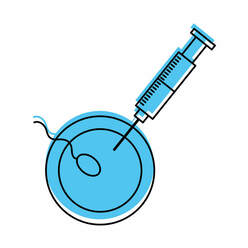Medical Help to Conceive
There are many reasons why a couple may need medical help to conceive - from being over 35 to having irregular periods. Whatever the reason is, below are some ways medicine can help you try to conceive.
Fertility Drugs
This is an oral medication that women take to help the body ovulate. These drugs block your body from producing estrogen and cause the hypothalamus and pituitary gland to release hormones to trigger a woman's ovaries to release eggs. The side effects from these drugs are mild. The side effects include nausea, bloating, headache, and hot flashes.
Testing Sperm

Women are always the ones getting blamed when conceiving becomes hard. In couples that have found out they are having fertility issues, 40% of the time the male partner's sperm is the cause. There are many factors that can cause a man to have a low sperm count:
- Retrograde ejaculation - this is when semen moves back into the bladder instead of the penis
- Absence of the vas deferens
- Anti-sperm antibodies - a man produces antibodies that attacks its own sperm
- Infections
- Hormone problems
- Undescended testicle
- Chemotherapy
- Certain medications
Hysterosalpingography (HSG)
This is a test to check if a woman's fallopian tubes are blocked and the shape of the uterus. This is done by the doctor injecting a dye through a woman's uterus that will go into the fallopian tubes (if they are open), then the dye will spill out into the pelvic cavity. If the tubes are blocked, then the woman may feel pain - let the doctor know. After the dye is injected, x-rays will be taken. The x-rays will then be examined to determine if there is an issue. If the fallopian tubes are blocked, a woman will not be able to get pregnant unless she tries IVF. In 10% to 15% of women that have recurring miscarriages, an abnormal shaped uterus is to blame. Sometimes a uterus can be treated with surgery.
hCG Injections
hCG can be given to help conceive - from helping with low sperm count to helping women ovulate. hCG can also raise the chances of implantation of the embryo after fertilization.
IVF
In Virto Fertilization (IVF) is a process of fertilization of extracted eggs in a lab. The embryo(s) are then transferred to the uterus. Couples tend to choose IVF due to the following:
There are 5 basic steps in IVF:
After 2 weeks the woman will have a blood test to measure the hCG levels to confirm pregnancy.
With any medically induced conceptions, there is a chance of having multiple babies. If you decide not to get medical help with having a baby, there are other options that can help you have a baby, such as adoption or surrogacy.
- Blocked fallopian tubes
- Low sperm count
- Ovulation issues
- Genetic disorders
- Unexplained infertility
There are 5 basic steps in IVF:
- Fertility medications are given to the female to stimulate egg production.
- Eggs are retrieved through a minor surgical procedure.
- The male is asked to produce a sample of sperm.
- Insemination (the sperm and eggs are mixed together in a lab to encourage fertilization).
- Once the eggs are fertilized, the eggs are transferred into the woman's uterus. This is usually done 3 to 5 days after fertilization.
After 2 weeks the woman will have a blood test to measure the hCG levels to confirm pregnancy.
With any medically induced conceptions, there is a chance of having multiple babies. If you decide not to get medical help with having a baby, there are other options that can help you have a baby, such as adoption or surrogacy.
